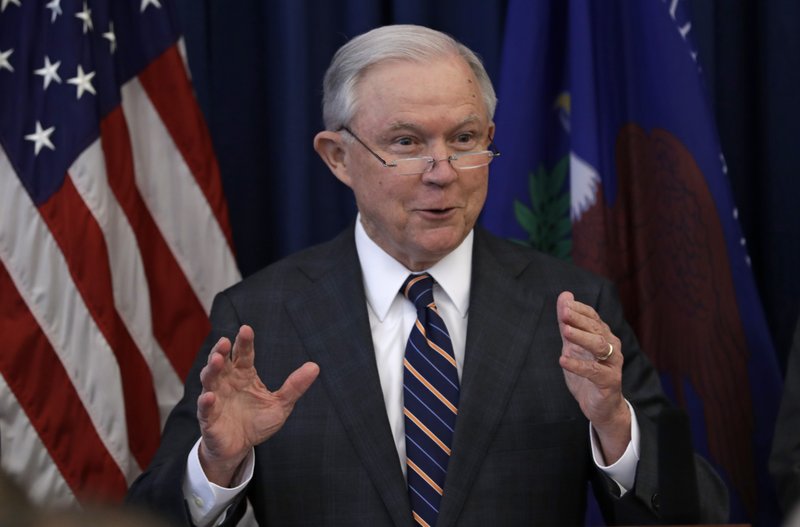WASHINGTON -- President Donald Trump escalated his criticism of Attorney General Jeff Sessions over the president's view that Sessions failed to protect him from the federal investigation into Russia's interference in the 2016 election, and into whether any Trump associates conspired with it.
In his latest attack, Trump said, "I don't have an attorney general."
"It's very sad," he continued in an interview Tuesday with The Hill, a Capitol Hill newspaper.
On Wednesday morning, Trump reversed himself. "We have an attorney general," he said, in response to reporters' questions as he departed the White House to visit storm-struck North Carolina. "I'm disappointed in the attorney general for many reasons."
Asked whether he planned to fire Sessions, the president added, "We are looking at lots of different things."
Trump has publicly rebuked the attorney general for recusing himself in March 2017 from overseeing the Russia investigation -- a sprawling inquiry that has cast a shadow over Trump's time in office.
In his interview with The Hill, Trump said his disappointment in Sessions extended beyond the Russia investigation to immigration, an issue on which both men share a hard-line view.
"I'm not happy at the border, I'm not happy with numerous things, not just this," Trump said.
Trump's most recent criticism of Sessions came days after Trump ordered the declassification of records related to the Russia investigation, an inquiry he has called a witch hunt.
Since Sessions stepped aside, that inquiry has been overseen by the deputy attorney general, Rod Rosenstein, who appointed a special counsel, Robert Mueller, to lead it. Trump has said repeatedly that he expected Sessions to protect him from the investigation, which has resulted in convictions and guilty pleas from some of the president's former aides.
Sessions recused himself from all campaign-related inquiries to avoid a conflict of interest because of his role on the Trump campaign. Rosenstein has said he would not fire the special counsel.
The president recently told Bloomberg News that he would not fire Sessions before the midterm elections in November. Should Trump decide to dismiss him, it is unlikely that the Senate would be able to confirm a replacement before then.
Trump's attacks on the typically independent justice system have increased as the Mueller investigation has implicated people tied to the president.
In August, Sessions issued an unusual public statement in response to one of the president's insults and said he would not allow politics to interfere with investigations while he is attorney general.
"The attorney general is a public servant," David Kris, a founder of Culper Partners and a former assistant attorney general for national security, said Wednesday in an interview with CNN. "The attorney general is not the president's personal lawyer, and the president would do well to remember that."
Trump already has personal lawyers looking out for his personal and business interests in two federal investigations in Washington and New York.
In his interview with The Hill, Trump also said he regretted not firing his first FBI director, James Comey, earlier. Comey was appointed by former President Barack Obama and was less than five years into a 10-year term when Trump abruptly fired him in May 2017.
"If I did one mistake with Comey, I should have fired him before I got here. I should have fired him the day I won the primaries," Trump told The Hill.
The president's reasons for firing Comey are part of a special counsel inquiry into whether the president intended to obstruct justice by removing the FBI director, who was leading the investigation into some of Trump's closest aides.
A Section on 09/20/2018

